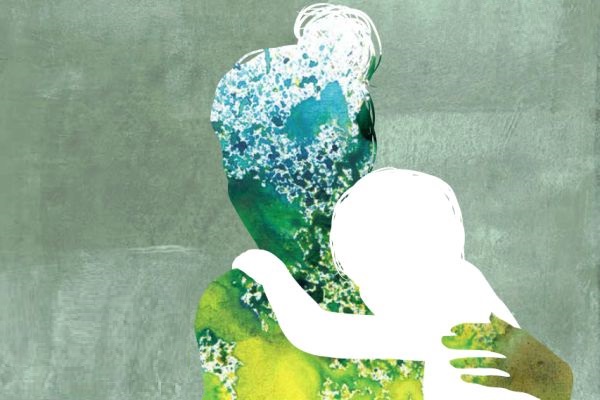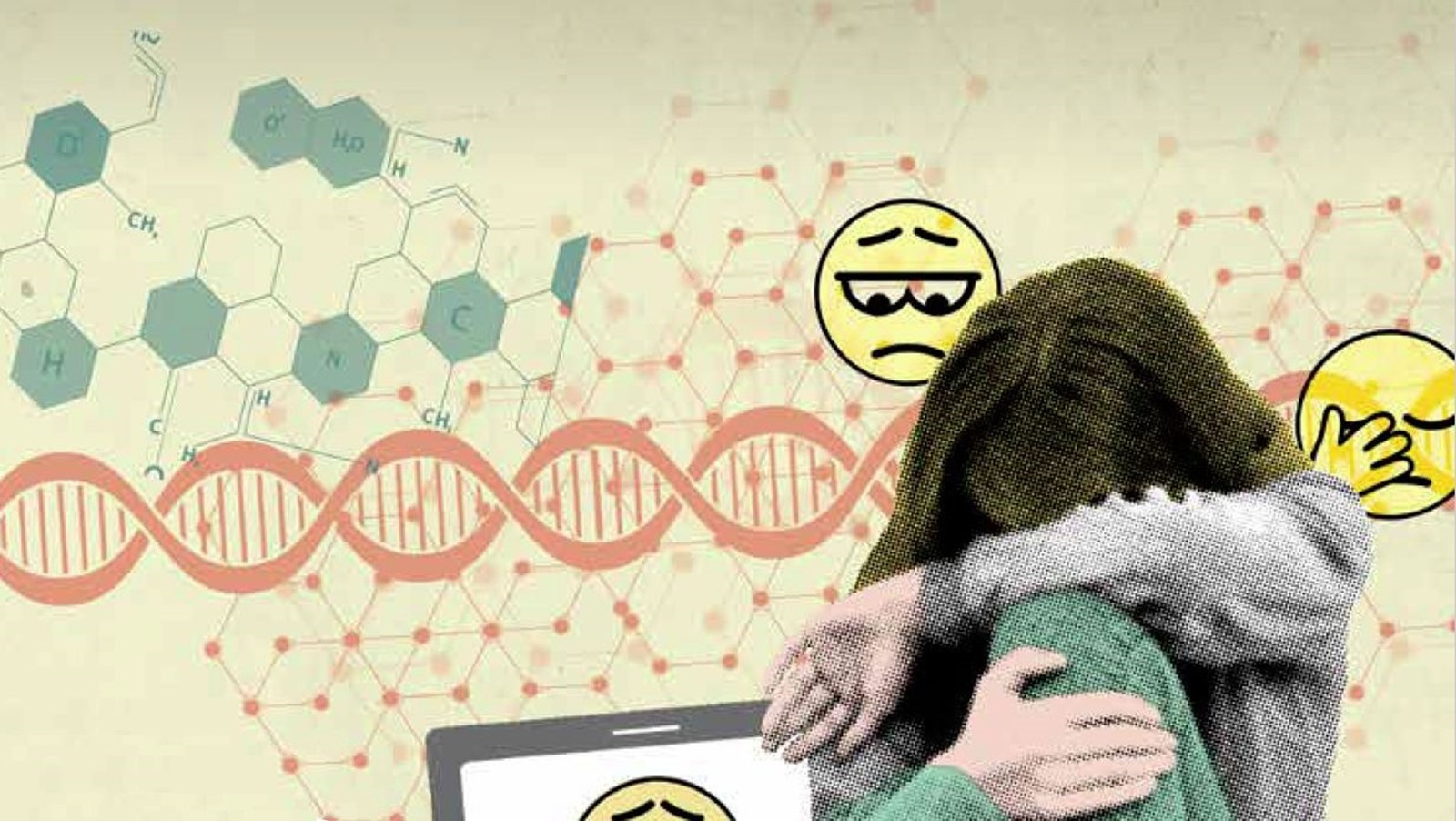How many people struggling with depression have you met through your work over the last six months? How many times has someone you know personally opened up about battling with depression? Has this changed over the past 10–20 years?
As the stigma facing individuals with mental health issues has decreased in recent years, the openness with which people are approaching mental health services for help has increased. One in five people in the UK experience an episode of depression at some point in their life.1 The number of antidepressants prescribed has significantly increased over the past 20 years.2 But if someone asked you to explain what depression is and what you think causes it (without simply referring to the ICD-10 criteria!), would you know exactly what to say?
As a medical student hoping to become a psychiatrist, but with relatively little clinical experience so far myself, this past year I set out on a journey to gain a better understanding of depression. I took a year out from my medical studies to work as an apprentice for my local church and took the opportunity to carry out a project that involved interviewing 13 professionals working in different areas of mental health. I met with a mixture of counsellors, psychologists, psychiatrists, doctors and pastors about their work and their Christian faith, focusing on one particularly common mental health issue: depression.
I began the project rather naively assuming I would find answers to all of my questions and as a result develop a clear plan about how to approach my potential future as a psychiatrist with a personal Christian faith. Unsurprisingly, I found the experience more like opening a can of worms than putting answers neatly in boxes; such is the complexity of human nature and mental illness. Many of my interviewees helpfully observed that both human nature and the questions of suffering and illness are deeply complex issues and to exercise a good measure of intellectual and philosophical humility when exploring them is crucial. I completed my project with an overwhelming sense of the importance of not being reductionist about human nature and suffering with mental illness, especially with an issue as sensitive and complicated as depression. It is also important to be reminded at this point that depression is a dark and agonising struggle for those who battle with it, and for their friends and family walking with them.
The first issue I will discuss in this article is the difficulty of defining depression. I will then explore the various contributing factors that lead to the onset of depression, before discussing the reasons that have been suggested for the apparent rise in depression in recent years. Throughout the article, I will continue to comment on my growing appreciation of maintaining a holistic view of the person when seeking to understand and address depression.
Defining depression
So what exactly is depression? Although this might seem like a simple question, in everyday communication the word is used to describe a wide spectrum of emotional experience. The ICD-10 criteria3 are used in the UK to distinguish between experiences of depression that fall within the normal range of a healthy emotional life, and clinical depression, which is of a duration and severity that goes beyond what is considered a healthy experience. The impact on everyday functioning is often used to distinguish between a ‘normal’ experience and mental illness. The challenge of diagnosing any mental health condition lies in the difficulty of drawing a line between what is considered normal and what is pathological, which is inherently problematic – where do you draw the line? How do you measure it? How do you account for individual differences? It was encouraging that there seemed to be a general consensus among the interviewees about how to differentiate between normal sadness and clinical depression. Most interviewees used severity, duration and impact on functioning as distinguishing factors, which is in line with the ICD-10 guidelines. It is of course helpful to recognise the value of the current guidelines, which clearly had benefitted the professionals I interviewed and the individuals they work with. However, these criteria change with each revised publication and, in reality, having a set of guidelines is far from being the same as putting them into practice to make consistent diagnoses. This led me to realise that although having a clear definition of clinical depression is both necessary and helpful, it does not equate to understanding exactly what depression is. Finding the definition of depression dissatisfying spurred me on to look further into whether the causes of depression would be more enlightening.
So, what causes depression?
Back to my question at the beginning: if someone asked you to explain what depression is and what you think causes it, would you know exactly what to say? When I asked my interviewees, ‘What causes depression?’ the universal response was: ‘It is multifactorial’. When probed further, several factors were described as being possible contributors. These ranged from the biological: thyroid problems, post-natal depression, seasonal affective disorder, a ‘chemical imbalance’, neurotransmitter dysfunction, genetics, physical illness; to the psychological: suppressed anger, grief, loss, unhealthy thought patterns, anxiety, trauma, addiction, personality; to the relational and social: abuse, job loss, childhood trauma, upbringing, environment, traumatic life event; to the spiritual: guilt, sin, unforgiveness, spiritual oppression… and the list continues.
Many of the interviewees acknowledged that there are usually multiple causes leading to the onset of clinical depression and often it is impossible to determine precisely the causal pathway in any given individual. I found one interviewee’s answer in some ways the most enlightening as he candidly responded: ‘We don’t know.’ He commented that, in his experience, all academic psychiatrists would be open in saying they do not know the cause of depression. It was at this point that I realised my desire to gain a greater understanding of depression was going to involve acknowledging I understand a lot less than I thought I did.
Despite this reality check, one reminder I found helpful is that the biological, psychological, social, relational and spiritual factors I listed above do not exist in isolation; they are often closely linked, and always impact upon one another. Humans are not made up of disparate parts; we are complex, multifaceted unities of body, mind, soul, spirit, heart, will and so on. One interviewee suggested that perhaps for as many unique individuals that there are in the world, there are as many possible causal pathways leading to clinical depression. Rather than being overwhelmed by the many causes of depression, perhaps harnessing the breadth of contributing factors could be constructive in developing a more holistic therapeutic framework.
However, at this point on my journey it seemed that finding a clear definition of depression had not provided me with the answers I was looking for, and finding the cause of depression seemed an elusive goal. I therefore wondered if looking further into the question of why depression has risen in prevalence might shed more light.
Why the rise?
All of the interviewees had many thoughts about possible reasons for there being a rise in depression in recent years. A topic that came up repeatedly was the impact of technology and the internet. One example of this is how the rapid rise of using information communication technology has led to an expectation that people are always available on their phones or by email, preventing real rest and time away from work. The rise of social media was also mentioned; young people today have an online presence that previous generations did not experience. Social media provide constant exposure to images and presentations of what others have and are experiencing, which breeds comparison and dissatisfaction. The increased accessibility of pornography and general images in the media of ‘ideal’ bodies, wealth, relationships and careers can also lead to disappointment and a sense of failure. Finally, the number of superficial relationships maintained online in a virtual reality was also mentioned as possibly contributing to isolation and a decreased number of real life friendships with depth and support.
There were also several factors that interviewees highlighted affecting individuals on a relational level. Family breakdown was one, particularly increasing divorce rates and fewer children being brought up in a stable family home environment. It was also suggested that close relationships with extended families are less common today. Communities in which people live and work for consecutive generations are dying, which could contribute to less social support and increasing levels of loneliness and isolation. Similarly, the notion of living in community and depending on others is diminishing. Autonomy is a key principle of postmodern Western culture; we are obsessed with living for ourselves. Everywhere you look, you are urged to be who you want to be and not to let others hold you back. This priority and focus on the self also subtly breeds isolation and a lack of fulfilment and was again suggested as being a possible reason for increasing levels of depression.
Several factors relating to economic growth and prosperity were also mentioned by the interviewees. Firstly, the relative material wealth in the UK was seen by some as a possible contributor to increasing levels of depression. With such a breadth of opportunities available in the UK, this could seem surprising, but one interviewee pointed out that when you discover money and success do not deliver the satisfaction they promise, it is feasible this could lead to further discontent. Contrastingly, economic uncertainty and employment instability were also suggested as contributing factors to higher levels of depression. During the recession many people faced uncertainty in their future financial stability. The competition for jobs remains tough in many areas in the UK and many people face long periods of unemployment or the constant worry of zero-hour contracts and self-employment. Furthermore, the days of having one career for life are gone and there is more uncertainty about long-term prospects. Therefore, interestingly, two seemingly opposing, yet equally convincing, schools of thought were suggested by the interviewees.
Another factor that interviewees mentioned as possibly explaining the rise in depression is the secularisation of the UK in recent years. Generally, the UK is moving away from a Christian way of life; fewer people attend church and the Christian legacy that underpins our laws is being eroded. Some interviewees suggested there could be a link between losing the general principles for healthy living promoted in the Christian faith and a lack of hope and purpose in life. Finally, a few interviewees mentioned the impact of living in a culture that does not typically express emotions. In the UK there is a stereotype of the ‘stiff upper lip’ mentality. Living in a society with many suppressed and repressed emotions turned inward was suggested by some as contributing to higher levels of depression.
So it seems one does not have to delve too far to find several possible explanations for the rise in depression we have seen in recent years. But are these reasons enough to shed light on what depression really is and why it happens?
What have I learnt from all of this?
Throughout this article so far I have looked at what depression is, what causes it and why it seems to have been on the rise in recent years; all with the aim of seeking a better understanding in order to deliver the best care I can as a future doctor. What have I learnt from seeking the wisdom of professionals working day in, day out with those struggling with issues such as depression? Initially I learnt that defining depression is not the same as understanding it, that looking for the cause of depression rarely leads to a simple answer and that there are countless possible reasons for why there might have been a rise in depression in recent years. This might all seem a bit obvious. However, these points have led to some key insights that I hope will continue to equip me in the years to come.
The first is that it is unlikely that there will be a simple answer to a difficult question and this is not necessarily a bad thing. Human nature is complex and mental illness is difficult to understand. The second is that it can sometimes be missing the point to be too keen to find out why things happen.
Many of the interviewees commented that they find that the endless hunt for the ‘Why?’ in depression can be destructive for individuals struggling with it. Instead, what they find most helpful is having a comprehensive framework to help someone with depression. Therefore, rather than leading to despair, acknowledging the complexity of depression can actually be a step towards creating a holistic framework of support. Instead of trying to reduce depression down to a simple problem with a simple solution, by acknowledging it is a complex issue, a more comprehensive solution naturally follows. So what would this more comprehensive solution look like? Perhaps making use of some of the initially dissatisfying answers I looked at earlier could be helpful. For example, the many biological, psychological, social, relational and spiritual factors leading to depression surely call for a framework addressing the biological, psychological, social, relational and spiritual aspects of a person. Due to their interconnected nature, all aspects must be addressed, even if it does not initially seem that all are affected… yet how often does this happen today? Furthermore, if a lack of rest, unhealthy comparison with others, a lack of deep and supportive relationships, not living in community with others, idolising financial security and success, losing sight of a purpose beyond the here and now and suppressing emotions might have led to an increase in depression, then perhaps initiatives that seek to counter these factors could become part of the answer.
Rather than despairing at the confusing, mixed messages about what depression is and what causes it, I have been challenged to harness the knowledge that we do have so far in order to continue developing better frameworks of support. I will not despair at this issue that seems to be never-ending in a field that is ever-changing; rather I will take heart that the more we discover, the better equipped we will be to provide the support so many are desperately in need of.
Sarah Parry is a final year medical student at University College London. She has just finished a year working as a church apprentice at All Souls Church, Langham Place, London.
More from Thresholds

No longer at base camp: a personal view of spirituality
Free article: Peter Bowes reflects on his own psychology of spirituality. Thresholds, Summer 2015

Blocks to inner healing
Free article: Jennie Cummings-Knight asks ‘Do we really want to be free or is it too scary?’ Thresholds, Spring 2015

It's God's job to do the ripples
Open article. David Waite explores his approach to the spiritual elements of his counselling practice. Thresholds, Winter 2014
References
1. RCPsych Public Education Editorial Board. Depression: key facts [leaflet]. RCPsych Public Education Editorial Board; 2014.
2. Moore M, Yuen HM, Dunn N, Mullee M, Maskell J, Kendrick T. Explaining the rise in antidepressant prescribing: a descriptive study using the general practice research database. British Medical Journal 2009; 339: b3999.
3. The ICD-10 Classification of Mental and Behavioural Disorders. 10th ed. Geneva: World Health Organization; 2010.
